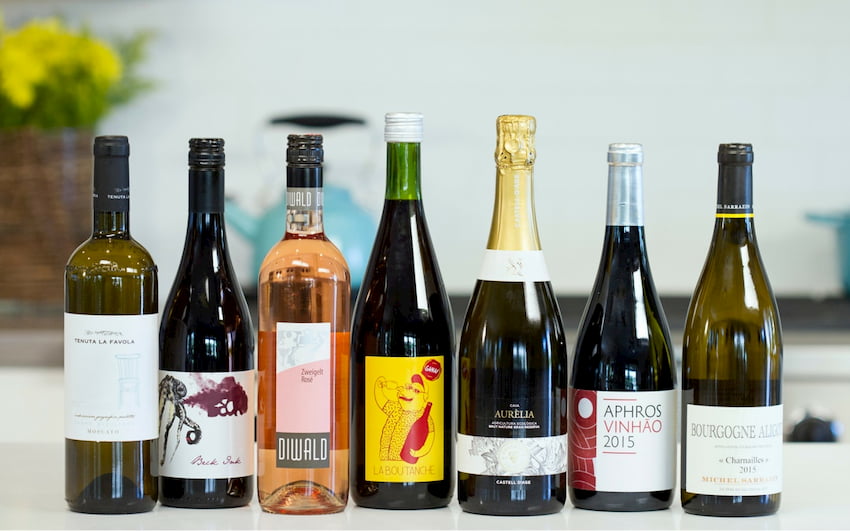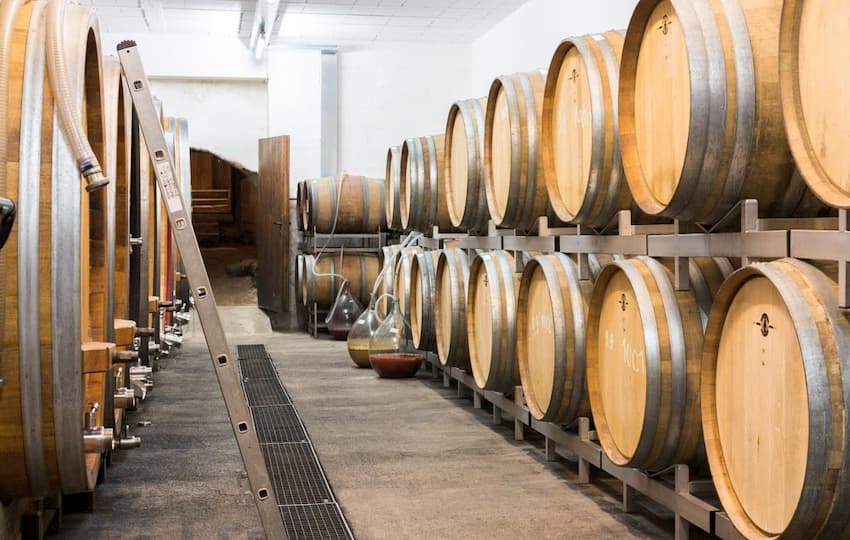
Natural Wines: A Story Worth Tasting
Contents
What is Natural Wine?
For the last decade, natural wines (also known as lo-fi wines) have slowly been making their way into the world. But the truth is that these wines have existed since ever. In the past, such wines were made without the use of commercial yeast, enzymes, vitamins, powered tannin and sulphur dioxide. Back then, they were made from crushed grapes that fermented into wine and that’s it. Nowadays, for a wine to be natural, it needs to be made from organic grapes and nothing more. Unfortunately, not all winemakers follow this rule, so the presence of some other ingredients like a range of preservatives is possible.

A simple definition of natural wines would be that there’s nothing added and nothing taken away from it during the wine-making process. The one and only exception in these wines is the little presence of sulphates which is caused by the wine’s fermentation. On the other hand, the conventionally made natural wines can contain a significantly larger number of added sulphates during the process while still being accepted as natural. Another difference between conventional and real lo-fi wines is in the making process.
While conventional winemaking includes lots of fining and filtering, the filtration in these wines is kept to a minimum. This explains the cloudy bits which usually settle on the bottle’s bottom. Usually, terracotta pots and clay amphora are the ideal types of vessels used for fermenting, however, this can vary from one winemaker to another. Oak barrels can positively influence the wine’s taste and flavour and they are mainly used for the process of ageing.

The last but not least distinctive characteristic of lo-fi wines is the flavour. Since these contain no added additives, natural lo-fi wines offer incredible fruit purity and intense wine taste. Unlike conventionally made wines, the natural ones are more cloudy, like an organic apple juice and have a sour, pulpy and vinous taste. Some other descriptions about the taste of these wines are natural, savoury, rustic, muddy and meaty.
How to Store Natural Wine?
An important thing to know about sulphate-free wines is that they can be quite unstable in the long term, especially if not stored properly. They are highly sensitive as there are no added preservatives in them (except for the sulphur which is a by-product of fermentation) which is why storing them the right way is essential. In order to do that, you simply need to follow the general rules.

Note: The longer the wine ferments and is exposed to oxygen (once opened), the bigger are the chances of it developing a cidery taste and smell.
Is Lo-Fi Wine Better for You?
A lot of people think that drinking sulphate-free wines is healthier for them, but this is not entirely true. Wine is alcohol, so drinking too much can cause some long-term health problems. So. the conclusion will be the same as always, to drink moderately. One glass per day for women and two glasses per day for men.

Now, speaking from another point of view, wines which are completely natural are way better to consume than any other type of wine. This is because they don’t contain any additional pesticides and preservatives.
Does Sulphate-free Wines Cause Fewer Hangovers?

Although a lot of people think that these wines can cause fewer hangovers, this is not a proven thing. A lot of people think this must be true because of the lower levels of sulphate in these wines, but once again this is not scientifically proven. So it’s better to drink moderately. In addition, if you have problems with allergies, sulphate-free wines are surely a better option because they don’t contain any preservatives.
Where to Buy Natural Wine?
Since the production of these wines is not that popular, finding lo-fi wines in traditional wine shops can be tricky. Thankfully, nowadays online shopping has enabled the purchase of any kind of wine online. But in order to avoid getting scammed, make sure you do thorough research as to find a supplier that’s trustworthy and reliable. A supplier like this can provide you with a range of Australian and international wines that have Organic Certification.
What’s the Difference Between Natural, Organic & Biodynamic Wine?

Unlike natural wines, which are made with organic grapes and no added preservatives, organic wines can contain some additives which are allowed in conventional wines. Biodynamic wines, on the other hand, are produced with some organic farming methods, like the use of only natural materials, composts and soils to sustain the vineyard. In other words, no pesticides or chemical fertilisers are applied to the soil. So, biodynamic wines are closer to the natural, but the truth is that usually, today’s biodynamic wines are just conventional wines made with biodynamic grapes.

